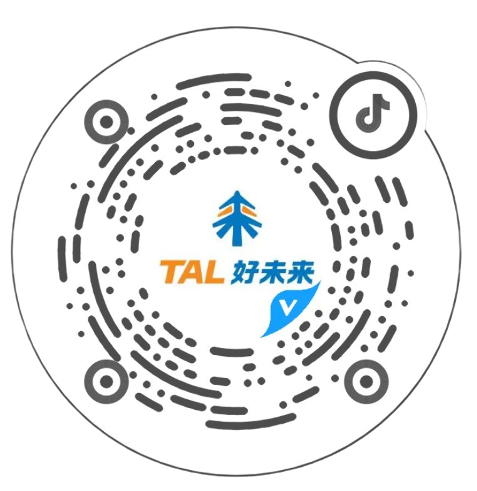




On May 31, the "Guangdong-Hong Kong-Macau Educational Innovation Ideas Sharing Conference" hosted by Future Star, a subsidiary of Tomorrow Group, and the fifth anniversary of Future Star's South China Region Day, was held in Shenzhen. The event invited more than 120 industry-leading education company founders and managers to discuss the development trends of the Chinese education industry and to promote collaborative innovation in education in the Guangdong-Hong Kong-Macau region.
This February, the "Outline Development Plan for the Guangdong-Hong Kong-Macao Greater Bay Area" was officially released, outlining forward-looking plans for various aspects such as technology, finance, culture, education, and environment in the Guangdong-Hong Kong-Macao region. Education is a top priority among them and serves as the foundation for technological and economic development. The timing of this event coincides with the fifth anniversary of Future Star, providing an opportunity to organize this event.

Yunfeng Bai, Co-founder and President of Tomorrow Group, gave the opening speech
Key figures such as Future Star Principal and Tomorrow Group Co-founder and CEO Bangxin Zhang, Yunfeng Bai, Co-founder and President of Tomorrow Group, school committee member of Future Star and founder of Little Oranges Castle, Liangzi Hu, school committee member of Future Star and Chairman of Private Tutor, Guozhi Hu, the fifth batch of Future Star Entrepreneurship Camp students and CEO of Coding Cat Li Tianchi, founder of Hong Kong Zunli Group Jingheng Wu, Chairman of the Guangdong Association for Educational Innovation and Development Li Yang, General Manager and Chief Economist of Guangdong-Hong Kong Life, Yuan Ji, and Huang Airan, Regional General Manager and Brand Management Expert of Hong Kong PPW Group, as well as hundreds of education company and higher education institution leaders attended the event. They discussed topics such as policy interpretation, artificial intelligence, talent development, cross-border dialogue, and ecological co-construction to explore the favorable policies of the Guangdong-Hong Kong-Macao region, leverage regional advantages, share innovative education knowledge, and discuss education development.
Guangdong-Hong Kong-Macau Education Industry: Connecting for Win-Win is the Key to Enhancing Education Quality
As a representative of local education entrepreneurs in Shenzhen, Hu Liangzi, a school committee member of Future Star and founder of Little Oranges Castle, shared the development opportunities for education in the Guangdong-Hong Kong-Macau region. She believes that the cultural characteristics of the entire Guangdong-Hong Kong-Macau region are open, inclusive, connected, and innovative. The education sector also has its own characteristics and is in a state of great development.
Guozhi Hu, also a school committee member of Future Star and Chairman of Private Tutor, strongly agrees with this view and emphasizes the importance of the soil. He believes that education in Guangdong-Hong Kong-Macau has internationalization and integration of industry, academia, and research, and with the increasing frequency of cooperation and exchange in the industry, it will lead to better integrated innovation.
Jingheng Wu, founder of Zunli Group, introduced the education system in Hong Kong. He believes that the biggest characteristic of Hong Kong education is its diversity and international alignment, which allows for seamless integration with international education in primary, secondary, and tertiary education.
As the largest private educational institution in Hong Kong, Zunli Group has accumulated a wealth of experience in curriculum training, teaching, and simulation examinations. How to use this international education experience to better help mainland students, educational institutions, and education resources integrate with international education, and improve the overall education quality of the Guangdong-Hong Kong-Macao region, is worth exploring by educators from all three regions.

Liangzi Hu, school committee member of Future Star and founder of Little Oranges Castle, gave a thematic sharing
Opportunities and Challenges: Innovative Development is the Fundamental Value of Education
Li Yang, Chairman of the Guangdong Association for Educational Innovation and Development, and Yuan Ji, General Manager and Chief Economist of Guangdong-Hong Kong Life, shared the opportunities and challenges of the education industry in the Guangdong-Hong Kong-Macau region from different perspectives of policy and capital.
Li Yang believes that education plays a fundamental role in the high-quality construction of international scientific and technological innovation centers in the Guangdong-Hong Kong-Macau region. While the region has excellent resource advantages, its education foundation is relatively weak. Faced with increasing industry competition, policy uncertainties, and risks associated with overseas listing and returning, he believes that education needs to return to its essence, and innovative development is the fundamental value of education.
Yuan Ji, from a capital perspective, pointed out that capitalization is a necessary path for education companies to grow and strengthen. However, companies should never compare who can go public faster. More market choices mean more opportunities, but also higher requirements for enterprises. He hopes that education companies can choose their position well, enhance their internal strength, and establish a foothold in the market.

"Join hands to assist in the development of education in the Guangdong-Hong Kong-Macao region" roundtable dialogue
Envision the Future: Artificial Intelligence Education is Key in the Next Twenty to Thirty Years
Artificial intelligence education is a key topic at this idea-sharing conference. Li Tianchi, CEO of Coding Cat and a participant in the fifth Future Star Entrepreneurship Camp, shared some models and experiences of his four years of entrepreneurial exploration. Li summarized his sharing using two "triangular" theories. The first is about good teachers, good content, and good tools, which he believes are essential for artificial intelligence education.
In terms of specific strategies, his other "triangular" theory involves policy, government, schools, and enterprises. In the process of landing in many cities, Coding Cat has seen that these three factors are developing in a very positive loop. For Guangdong-Hong Kong-Macau, strengthening collaborative exchange, leveraging the advantages of each region, seizing opportunities to attract talent, and developing its own strengths are essential for laying a good foundation for the development of artificial intelligence in the region for the next twenty to thirty years.
Bangxin Zhang, Principal of Future Star and Co-founder and CEO of Tomorrow Group, presented a "surprise remote speech" for the guests through Tomorrow Group's own online dual-teacher system. He shared insights on topics of strategy, team management, and operations and had sincere and frank discussions with over a hundred CEOs and founders present. The atmosphere was enthusiastic.

Bangxin Zhang, Principal of Future Star and Co-founder and CEO of Tomorrow Group, delivered a remote speech via the dual-teacher system
In his speech, Bangxin Zhang used the three elements of artificial intelligence, "computing power, algorithms, and data volume," as a metaphor for company management. Computing power corresponds to a company's talent, algorithms correspond to the company's values, and data volume corresponds to the scale of the company in the industry and industrial chain.
He believes that as a company grows from dozens of people to hundreds, thousands, or tens of thousands of people, it is constantly improving its computing power and optimizing its algorithms, continually expanding its data volume. Using this mindset to deconstruct their organization with a scientific method makes management clearer and more scientific, allowing the company to operate more smoothly.
Looking back on over a decade of entrepreneurial experience, Bangxin Zhang summarized it in eight words, "Grasp the essence, stick to the original intention." He encouraged all education entrepreneurs present to seize the opportunities given by the times, have a more confident and open mindset, and persist in doing the right thing with their heads down. Good results will naturally follow.
This "Guangdong-Hong Kong-Macau Educational Innovation Ideas Sharing Conference" was the first event in South China by Future Star. As Yunfeng Bai, Co-founder and President of Tomorrow Group, mentioned in his opening speech, "I hope that the education industry and cross-border guests can trigger many consensuses on education, and achieve more exchanges and cooperation. This will help the children in the Guangdong-Hong Kong-Macao region and the practitioners in the education industry to further promote the development of future education."
In the future, Future Star will fully leverage its existing 288 outstanding education CEO alumni in different regions by consolidating the strength of its alumni and more external educational innovation forces to jointly contribute to the development of Chinese education.